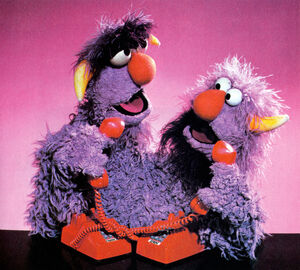Wednesday, June 30, 2010
Ask a Librarian: What is Information Literacy
One of the current buzz terms in library land is "information literacy." Librarians throw this phrase around whenever possible, usually when someone is asking them to justify their positions and the benefits they give to society or a school or business or whatever. But what in the world does it mean? (Here's a case where I'm asking you readers a question--if you're not in the library field, have you ever heard this phrase before? If so, what does it mean to you? (Or, what did it mean to you before you read my blog post and became enlightened?)) To librarians, the meaning is fairly straightforward.
Most people know what it means to be literate. There's the basic definition (being able to read) and the more nuanced one (being versed in literature). Most people get the whole "able to read" thing down in grade school, but the "versed in literature" part can take a lifetime to learn. A truly literate person is able to use words any way they wish. They can interpret levels of meaning, express themselves well in person and on paper, etc. For information literacy, take this same concept and apply it to information. (I know--you didn't see that one coming, did you?)
Many people feel like they can find information online. But are they at the "versed in information" level? (I've used the term "information fluency" from time to time, and I think that gives a better description of what librarians are trying to get at.) Ideally, some who is at this level is able to find the information they need whenever they need it. They recognize that sometimes a quick dip into Wikipedia will suffice, and at other times, several books and journal articles will be necessary to fill their needs. They can express what they learn accurately and responsibly, giving readers and listeners the cues they need to be able to find that information themselves. They know that some information is accurate, and some is garbage--and they can tell the difference. They can do all this quickly and easily, without the need to stop and ask for directions every step of the way.
Do you see the difference there? It's just like with language. There's one level of literacy (able to read Green Eggs and Ham) and a much higher one (able to interpret the many facets of meaning in Hamlet). Even at the higher level, some people will be able to see the meanings right off, and some will have to struggle for days to figure them out.
The goal of the modern librarian isn't just to check books out to the masses. It's to teach the masses to be information literate. As the volume information increases so rapidly these days, this is going to only become more and more vital.
It's a life skill, people.
Now, if only we librarians were better and getting the masses to understand this. :-)
Subscribe to:
Post Comments (Atom)

Would someone with a fluency level somewhere between levels one and two be operating at the Green Eggs and Hamlet level? Just curious.
ReplyDeleteAh, the infamous drama by Dr. Shakespeare, Shakespeare's younger brother. :-)
ReplyDeleteTo be, in a box,
ReplyDeleteor not, with a fox...
that is the question.
Dr. Shakespeare rocks. :)